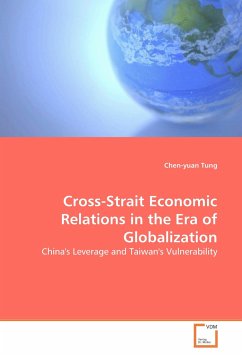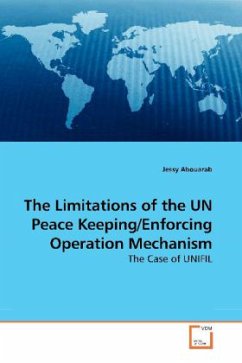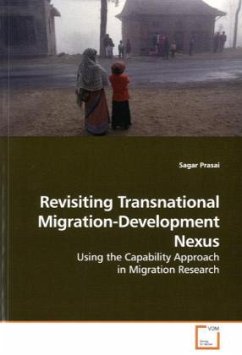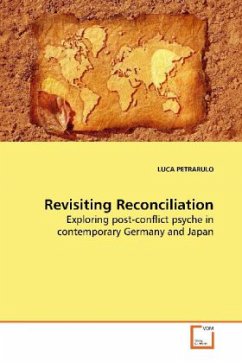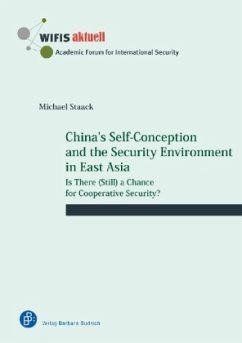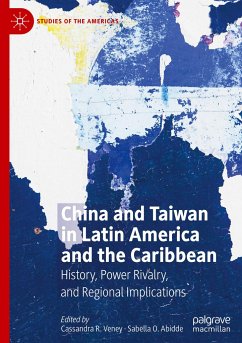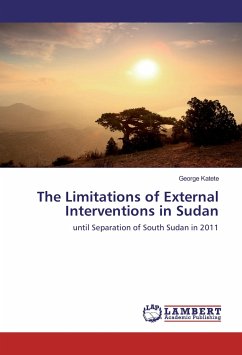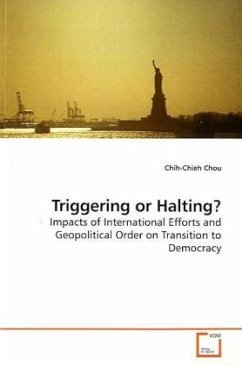
Revisiting the Potential and Limitations of Security Institutions
An Ideational Approach to the Taiwan Strait Security Dilemma
Versandkostenfrei!
Versandfertig in 6-10 Tagen
39,99 €
inkl. MwSt.

PAYBACK Punkte
20 °P sammeln!
Current literature on institutionalism tends to promise that as the vigor and intensity of formal institutions increase, conflicting transnational relations will decrease. However, security hot spots like Taiwan Strait show that even though the rivals are notably integrated and institutionalized, political conflicts have not eased. Nevertheless, war is absent for half a century. A possible answer to this dilemma is recognizing that there is a tacit, informal, and fragile framework of international norms that works beyond cheap talks. Tacit norms are essential for building political confidence ...
Current literature on institutionalism tends to
promise that as the vigor and intensity of formal
institutions increase, conflicting transnational
relations will decrease. However, security hot spots
like Taiwan Strait show that even though the rivals
are notably integrated and institutionalized,
political conflicts have not eased. Nevertheless,
war is absent for half a century. A possible answer
to this dilemma is recognizing that there is a
tacit, informal, and fragile framework of
international norms that works beyond cheap talks.
Tacit norms are essential for building political
confidence before those who disagree can found a
negotiation upon them. To identify this unspoken
norm-building process, this book provides a dual-
level analytical approach through ideational
perspectives. This new approach highlights the
critical effects of cognitive factors such as
identity, ideology, and their local host, political
groups in the institutionalization process. The book
offers a fresh comparative view of security studies
and it endeavors to inspire new ways of thinking
about conflict resolution and peacemaking policies.
promise that as the vigor and intensity of formal
institutions increase, conflicting transnational
relations will decrease. However, security hot spots
like Taiwan Strait show that even though the rivals
are notably integrated and institutionalized,
political conflicts have not eased. Nevertheless,
war is absent for half a century. A possible answer
to this dilemma is recognizing that there is a
tacit, informal, and fragile framework of
international norms that works beyond cheap talks.
Tacit norms are essential for building political
confidence before those who disagree can found a
negotiation upon them. To identify this unspoken
norm-building process, this book provides a dual-
level analytical approach through ideational
perspectives. This new approach highlights the
critical effects of cognitive factors such as
identity, ideology, and their local host, political
groups in the institutionalization process. The book
offers a fresh comparative view of security studies
and it endeavors to inspire new ways of thinking
about conflict resolution and peacemaking policies.



